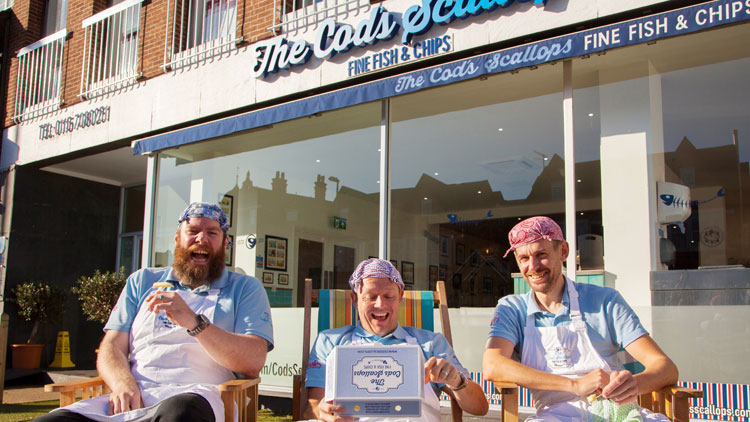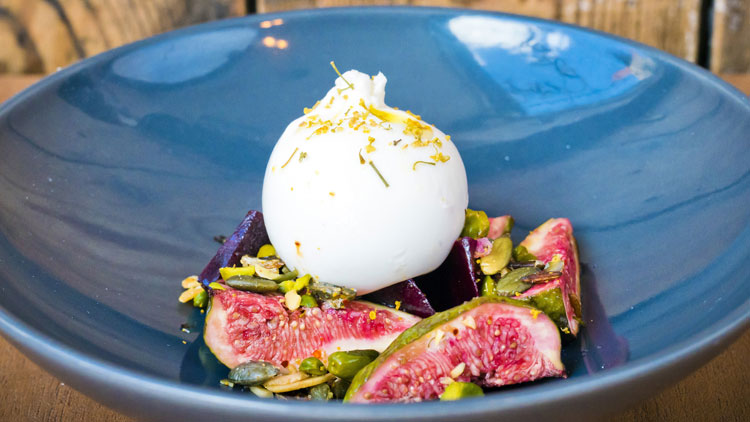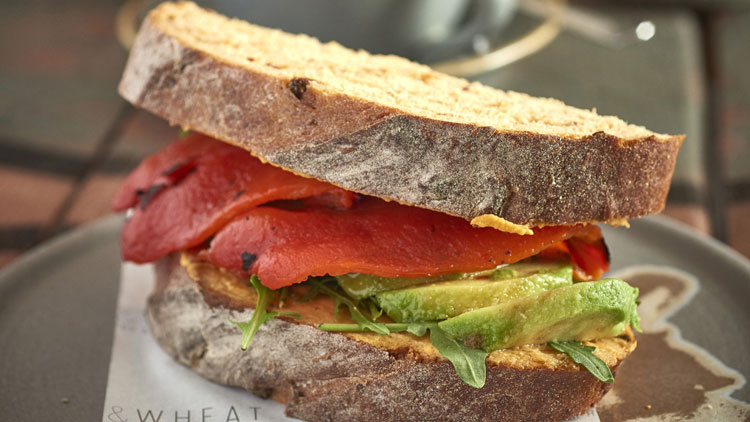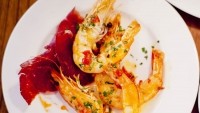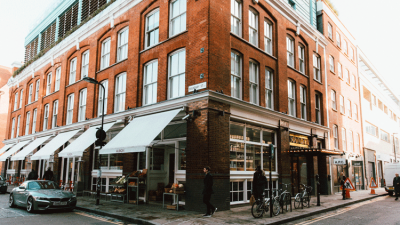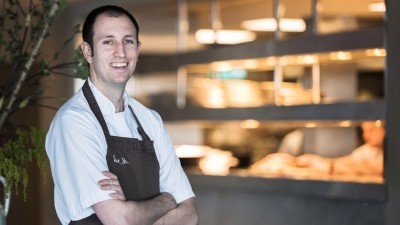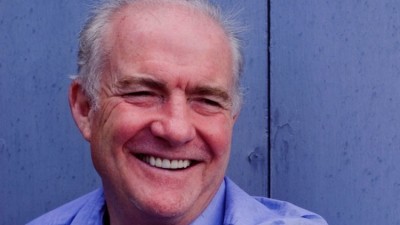The new diffusion lines: how today's chefs are branching out
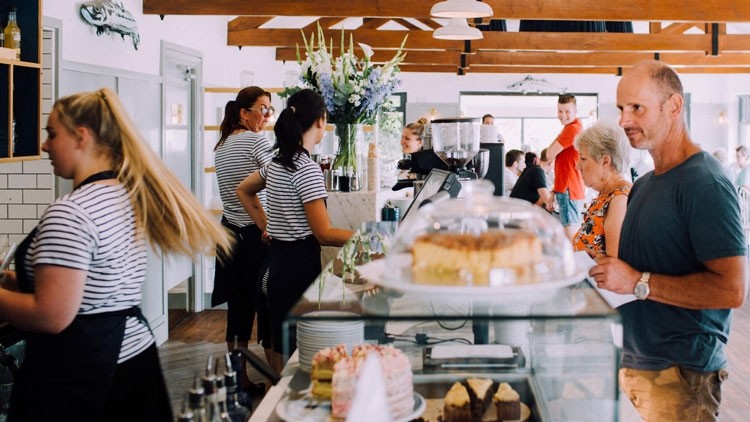
A decade ago, the typical avenues of diversification for ambitious chefs and ‘name’ restaurants were fairly standardised. Brands were reliably extended by opening bedrooms or a cookery school, a pub or a deli-café. Fine-dining restaurants begat bigger, casual restaurants as a sure-fire way to monetise a stellar reputation. But today’s market is very different.
Some of those avenues are exhausted, fashions have changed and in the middle of a casual-dining and skills crisis certain traditional options, such as opening a pub, are less attractive than they once were. In 2019, then, which spin-offs still work? What are the complementary businesses that offer safety in numbers or enhance sustainability, and where are their financial and logistical synergies?
From hip wine bars to chip shops, Restaurant spoke to the UK’s most dynamic operators to find out how and why they are branching out.
Chip Shops
Chefs moving into the world of the chippie isn’t a new phenomenon, just ask Rick Stein, who’s made a successful fist of it, or Tom Aikens, who ended up a bit battered by the process, but they are certainly providing food for thought for a new generation of chefs and restaurateurs.
Chef and businessman John Molnar used to be in pubs and he still co-owns one – the Lord Nelson. But, since 2011, he has been pouring his energies into a concept which, given the skills crisis and soaring business rates, seems uniquely suited to the current climate.
Molnar runs three The Cod’s Scallops chip shop cafés in Nottinghamshire, with another two planned this year. At £250,000, the start-up costs are not insignificant, but in terms of location and size – one is 2,000sq ft, another just under a 1,000sq ft – they are perfect, Molnar insists. “I don’t need city centres with high rents. I need chimney pots around me. I don’t look at rents north of £40,000.”
Molnar’s smallest site has 29 covers and is 80% takeaway. His others seat around 55 (one of these sites includes a central production kitchen that doubles as supper club venue Top Floor). On Fridays, these no-bookings venues might do 300 covers and 280 takeaway orders for 500-600 fish. “My cod bill is astronomical but we’re selling it,” says Molnar.
The Cod’s Scallops is a high-quality operation. Everything is cooked to order, all fish is MSC-certified and can be battered or baked and the menu runs from populist classics like battered sausage and chips to skate with chilli butter and a red cabbage lentil salad.
Customers can spend £7 on the high-volume takeaway items where Molnar hits 70% GP or trade up to affordable luxuries such as a whole lobster for £20, on which Molnar happily settles for a healthy cash-margin, and extras such as black pudding bon bons and by-the-glass Coravin wines. One table recently wolfed down oysters, tuna, scallops, fish and chips and bottles of Pouilly Fumé and Meursault, he recalls. “The bill was £172 – in a chippy!”
The bigger Cod’s Scallops sites require just nine staff at their busiest. Each has an experienced general manager, head chef and chef de partie, but the junior kitchen staff do not require extensive training. Their tasks across the menu are relatively narrow and repetitive. It is a lean, high-volume model, where Molnar is able to retain head chefs by paying them around £35,000 with bonuses, including Sundays and two nights a week off.
Similarly, Josh Eggleton, who runs the Michelin-starred Pony & Trap near Bristol, sees his two Salt & Malt cafés as a sustainable way of fulfilling his ‘social responsibility’ of securing a future for his 200 employees. He is creating a diverse portfolio of businesses with a shared DNA, which will allow his team to work across a range of high-calibre venues with different hours and demands, at different stages in their careers.
“Last year, we had six babies in the company,” says Eggleton. Not all new parents will want to work in a high-pressure Michelin environment, but he wants to retain that talent: “I’m not in it to make huge amounts of money. I’m in it to create a sense of community.”
Bakeries
When Mikael Jonsson opened his wholesale bakery in January 2018, it was a challenge. After years of chaotic baking at his much-lauded Chiswick restaurant Hedone, where dough was proved in the private dining room (“We had to get the guests out by midnight or we were in the shit”), the stable temperature and humidity at the Hedone’s Vauxhall bakery presented new problems.
But in one crucial regard its success was (almost) nailed on: Hedone bakery had customers begging for its bread. For years, fellow Michelin star chefs had been asking to buy Jonsson’s epic sourdough. He supplied as many as he could in London but this ‘hobby’ had accumulated a long waiting list. “It was already generating a fair amount of revenue but inefficiently. We were supplying the bread in mini-cabs, pretty much,” he says.
Hedone now sells a range of breads and bakery goods to restaurants and cafés. Jonsson’s biggest issue is managing the business need to expand, versus quality control. It is a nice problem to have.
When Edinburgh’s Gardener’s Cottage launched Leith bakery-café Quay Commons in 2017, the main motivation was to create a production unit where the team could continue to bake-from-scratch for what is now a group of two restaurants and two takeaway businesses. Like Jonsson, co-owners Dale Mailley and Ed Murray cleverly established a customer base before they opened.
The duo approached more than 20 businesses that agreed to buy their sourdough. Some of these (coffee roaster Machina, cheesemonger IJ Mellis), were suppliers to Gardener’s Cottage. Others were rival restaurateurs. All were excited by the idea of an artisan bakery delivering seven days a week using zero-emission electric vans.
“We use flour grown and milled in East Lothian,” says Mailley. “The bread is naturally fermented, our pastries are hand-rolled using Scottish butter. It’s as clean and local as you can get.”
Mailley found selling to other businesses a steep learning curve, however, as was finessing the retail side of Quay Commons to attract local office workers for breakfast pastries or lunch. This now accounts for 60% of the business’ turnover.
Recruiting skilled staff hasn’t been without its issues, but both businesses have managed to find staff. Night bakers aside (“a breed of their own”, according to Mailley), Quay Commons shuts at 5pm so it offers a decent work-life balance for its daytime team. Two years on, and particularly now that Mailley and Murray have taken on an ops manager and administrator to work across their businesses, the bakery project is a success. “It’s not as profitable as restaurants. We’re selling a relatively cheap product. But it’s proven itself in its support and the business itself works.”
Wine Bars
Josh Overington opened York’s Cave du Cochon in 2015 with a clear but simple aim – to make money from the wine and food waste generated by his four-day-a-week fine-dining restaurant, Le Cochon Aveugle (LCA). Inspired by the wine bars Overington had seen attached to Paris’ new-wave bistros, Cave opened almost next door to LCA, whose kitchen team then baked bread and snacky items such as confit duck sausage rolls, pigs’ head and potato pie, to augment the bar’s menu of meats and cheeses. “In restaurants, it’s difficult to use food up,” he says. “I can’t just throw some squash onto a dish. But the bar is more free and experimental.”
Cave’s mix of interesting wines and high-quality affordable food resonated, and in terms of synergies such as sharing admin, waiting staff and staff meals, the two venues complemented each other – without any cannibalisation. It was an upside, in fact, that when LCA was full, staff could direct diners to Cave.
Unlike LCA, which is high-pressure, long hours and a personal mission for Overington, Cave is fairly easy to run. With good managers in place, says Overington: “I just stick my head in and make sure they’re meeting the standards I want.”
It may seem counter-intuitive, therefore, that last year he chose to install a kitchen at Cave, recruit four full-time chefs (it now employs 10 people in total), and expand the menu with small plates and desserts. But Overington felt this was necessary to both retain people – “by offering everything in one place they have no reason to leave” – and differentiate Cave from a growing number of rival bars offering cool wines, cheese and charcuterie.
The changes have dramatically increased dwell time and spend, which now sits at around £45-£55 per head, with Cave serving more than 300 covers weekly. In the next year, it could become more profitable than LCA, he says.
That emphasis on food may sound bizarre in a wine bar, but it is one that James Hart – youngest of the three brothers behind Barrafina and El Pastór – agrees is vital. “It’s harder and harder to justify any establishment that only serves drinks,” he says.
Despite the constraints of its kitchen, which has no extraction (the building it is housed in was initially intended to be a bin store), their new King’s Cross wine bar, The Drop, works around those limitations to serve dishes such as braised ox cheek, horseradish mash and roast carrots, as well as the usual meats and cheeses. According to Hart, 50% to 75% of The Drop guests eat multiple courses there.
He warns against the notion that a wine bar is simply a pared-back restaurant – an idiot-proof next move for a restaurateur. “It’s its own concept,” he insists. “It’s as involved as a new restaurant.”
Coffee shops and cafés
“The Old Stamp House has made money from the day I turned the key,” says chef and co-owner, Ryan Blackburn. But like many chefs with Michelin aspirations Blackburn can see no way of replicating it
outside Ambleside, where he needs to be at the stove. He cannot spare the chefs, he says, and is too emotionally invested in it.
In contrast, at Kysty, the day-time casual diner he opened last summer, Blackburn can use his business management degree to full effect. “I’ve tried to create something I could potentially roll out, which isn’t as labour-intensive or as mentally intensive as The Old Stamp House,” he says. “At Kysty, I have a thought, I speak to the staff, then have it implemented.”
For legal and tax reasons, Kysty, which Blackburn owns with his wife, is run as a separate business to The Old Stamp House. The only resource they share is Blackburn himself: “I do shifts when required, which I’m trying to phase out.”
Six months into this £100,000 project, which was funded by private borrowing (rent is a mere £15,000 a year), Blackburn is still adjusting to this new market where the likes of Instagram and Facebook are powerful marketing tools and the average spend of £10-£15 is the price of a pre-dinner drink at The Old Stamp House. Trade is building steadily, with the business now doing 90 covers a day, plus takeaway, but Kysty still needs refining to yield meaningful profit. For instance, the menu needs more dishes that will encourage alcohol sales.
But with The Old Stamp House secure (“you have to be sure your first business is very solid”), Kysty is a low-stress project that Blackburn can hone gradually.
“I’ve just laid on a beach for two weeks and it’s run with no problems,” he says. “That’s what you want. That and it to take enough money to pay for a holiday, but hopefully that will come.”
Unusually, chef and restaurateur Adam Handling does not require any profit from his Hoxton coffee shop, Bean & Wheat. Located in London’s Shoreditch in the same building as his The Frog Hoxton restaurant (it occupies the space the previous owner used as its staff canteen), it is a break-even business. One that, by using unused restaurant produce (“if we don’t have a lot of waste, it doesn’t have a lot of food”) turns what would be a financial loss into income, takes an ethical stand and provides a, “forward-thinking training and staff development platform”.
Many would see running a not-for-profit business in London as “mental”, Handling concedes, and the model only works where restaurant and coffee shop are neighbours. He is selling the original Liverpool Street Bean & Wheat site because it is now too far from his restaurants and he cannot afford to deliver to it. “If you’re going to be sustainable, why put everything in a car? It’s bonkers.”
Bean & Wheat is personally satisfying and it brings a financial rigour to Handling’s Hoxton site, which other operator-owners might learn from. As Handling says: “It’s about financial benefit. Mine was that [food waste] wouldn’t bankrupt my company."
... But the pub hasn't lost its appeal
Taking on a boozer remains a romantic dream for many chefs looking to spread their wings and do something a bit different. Chef José Pizarro will next month take over Claude Bosi’s The Swan in Esher and relaunch it as José Pizarro The Swan serving Spanish food.
That may sound an odd move for a chef whose group of restaurants is based in Bermondsey and the City, but Pizarro has grown up with the local bar culture of Spain, where small bars serving food and drinks are the heart of the community, and he wants to recreate the same over here. Spanish food is well suited to a pub environment, too, as pubs often have small kitchens with much back of house space taken over for drinks storage and, as Pizarro ably demonstrates in his London restaurants, he doesn’t need much cooking space to crank out his menu.
Henry Harris also recently swapped his neighbourhood restaurant whites for those of a publican’s. The Crown, the fourth pub in the Harcourt Inns group, in which he is a director, has just opened in Chiswick, and Hero of Maida, the pub he took over last year, is now ranked in the Estrella Damm Top 50 Gastropubs list.
And there’s The Palomar team, which opened The Blue Posts pub in London last year, and Anglo and Stem chef Mark Jarvis, who also intends to open a pub of his own. The call of the bar has never been so strong.
This is a web version of an article that first appeared in the March issue of Restaurant magazine, the leading title for the UK's restaurant industry. For more features, comment, interviews and in-depth analysis of the restaurant sector subscribe to Restaurant magazine here
